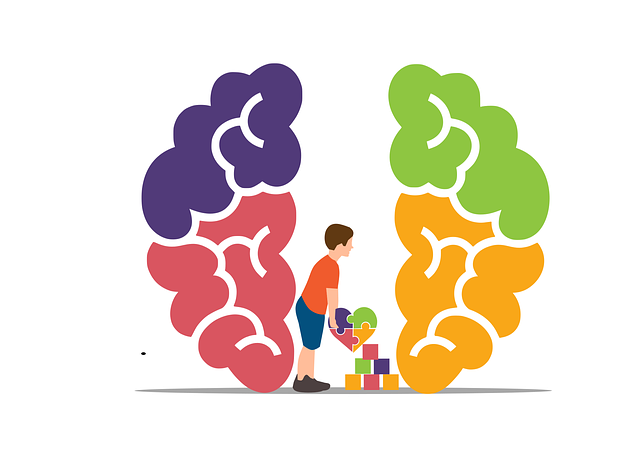Longmont Family Counseling Therapy (LFCT) excels in community outreach by understanding local needs through research and stakeholder engagement, tailoring programs like emotional intelligence workshops and mental illness stigma reduction sessions. Their success relies on partnerships with schools and non-profits, leveraging resources and expertise to create impactful initiatives. Strategic planning, including venue selection and marketing, ensures broad reach. LFCT measures success using KPIs, tracking participation, satisfaction, and improvements in mental health outcomes to continuously enhance their services.
“Community outreach programs, such as those offered by Longmont Family Counseling Therapy, play a pivotal role in fostering social well-being. This article delves into the strategic implementation of these programs, guiding professionals through essential steps. From understanding diverse community needs and identifying target populations to designing engaging initiatives and building collaborative partnerships, each phase is crucial for impactful change.
We explore best practices for smooth execution and outcome evaluation, ensuring programs like Longmont Family Counseling Therapy leave a lasting, positive mark on the communities they serve.”
- Understanding Community Needs: Identifying Target Populations for Outreach
- Designing Effective Programs: Strategies for Engaging and Empowering Communities
- Building Partnerships: Collaborating with Local Organizations for Impact
- Implementation and Logistics: Ensuring Smooth Operations and Consistent Delivery
- Measuring Success: Evaluating Outcomes and Enhancing Future Initiatives
Understanding Community Needs: Identifying Target Populations for Outreach

Understanding Community Needs is a critical step in implementing successful community outreach programs, such as those offered by Longmont Family Counseling Therapy. Identifying target populations requires a nuanced approach to ensure that services are tailored to address specific challenges faced by different segments of the community. This process involves extensive research and engagement with local stakeholders, including community leaders, healthcare providers, and representatives from various demographic groups.
By focusing on populations like low-income families, minorities, or individuals struggling with mental illness, Longmont Family Counseling Therapy can direct its outreach efforts effectively. For instance, programs aimed at fostering Emotional Intelligence and promoting Positive Thinking may resonate deeply with youth and young adults navigating social pressures. Similarly, Mental Illness Stigma Reduction Efforts can be tailored to engage older adults who might face unique barriers in accessing mental health support. This targeted approach ensures that resources are utilized optimally, enhancing the overall impact of community outreach initiatives.
Designing Effective Programs: Strategies for Engaging and Empowering Communities

Designing effective community outreach programs, such as those offered by Longmont Family Counseling Therapy, requires a deep understanding of and sensitivity to the needs and dynamics of the communities they aim to serve. The first step is identifying the specific challenges and goals of the target community. This might involve conducting surveys, focus groups, or workshops to gather input from residents on issues like mental health awareness, stress management, and coping mechanisms. Incorporating these insights into program design ensures relevance and engagement, fostering a sense of ownership among participants.
Effective programs should prioritize interactive and inclusive strategies that empower individuals. Workshops on mood management techniques, for instance, can teach practical tools to help community members navigate emotional challenges. Similarly, group therapy sessions focused on coping skills development create safe spaces for sharing experiences and building support networks. By facilitating these emotional healing processes, outreach programs not only address immediate needs but also equip participants with lasting strategies for well-being, fostering a more resilient and connected community overall.
Building Partnerships: Collaborating with Local Organizations for Impact

Building partnerships with local organizations is a strategic move for successful community outreach programs, especially when focusing on mental health initiatives like those offered by Longmont Family Counseling Therapy. By collaborating with schools, community centers, and other non-profit groups, counseling services can expand their reach and create a more comprehensive support system. This approach leverages the strengths of each organization, combining expertise in self-awareness exercises, emotional regulation, and stress management to benefit the entire community.
These partnerships allow for shared resources, knowledge exchange, and co-creation of programs that cater to diverse needs. Together, these entities can design workshops, seminars, or therapy groups that enhance mental well-being, foster resilience, and promote healthy coping mechanisms among participants. Such collaborations ensure a more sustainable impact, as they build upon existing support networks and create long-lasting positive change in the community.
Implementation and Logistics: Ensuring Smooth Operations and Consistent Delivery

Implementing community outreach programs like those offered by Longmont Family Counseling Therapy requires meticulous planning and coordination to ensure smooth operations and consistent delivery. The logistics aspect involves identifying target communities, selecting appropriate venues, and scheduling sessions that cater to diverse schedules. Effective communication strategies, such as leveraging social media and local partnerships, are essential to reach a broader audience.
A key element in ensuring successful outreach is integrating compassion cultivation practices and emotional well-being promotion techniques into the program structure. By incorporating Mind Over Matter principles, these initiatives not only address immediate needs but also foster long-term resilience and coping strategies within the community. Such an approach enhances the overall impact of the counseling therapy services, making them more accessible and impactful for those who need it most.
Measuring Success: Evaluating Outcomes and Enhancing Future Initiatives

Measuring success is a crucial step in evaluating the impact and effectiveness of community outreach programs like those offered by Longmont Family Counseling Therapy. By assessing the outcomes, organizers can gain valuable insights to enhance future initiatives. This process involves tracking key performance indicators (KPIs) specific to each program’s goals. For example, mental wellness coaching programs development might measure participation rates, client satisfaction scores, and improvements in symptoms of anxiety or depression prevention.
Additionally, evaluating crisis intervention guidance initiatives could include assessing the time taken to resolve crises, the number of individuals reached through emergency hotlines, and the success rate in connecting individuals with appropriate support services. These data points not only help identify program strengths but also areas that require improvement, ensuring continuous enhancement and better serving the community’s mental wellness needs.
Implementing successful community outreach programs, such as those offered by Longmont Family Counseling Therapy, requires a strategic approach that involves understanding local needs, effective design, partnership building, and meticulous planning. By identifying target populations, employing engaging strategies, collaborating with local organizations, and ensuring smooth logistics, these initiatives can empower communities and bring about positive change. Measuring success through evaluation allows for continuous improvement, ultimately enhancing the impact and reach of future outreach efforts.














